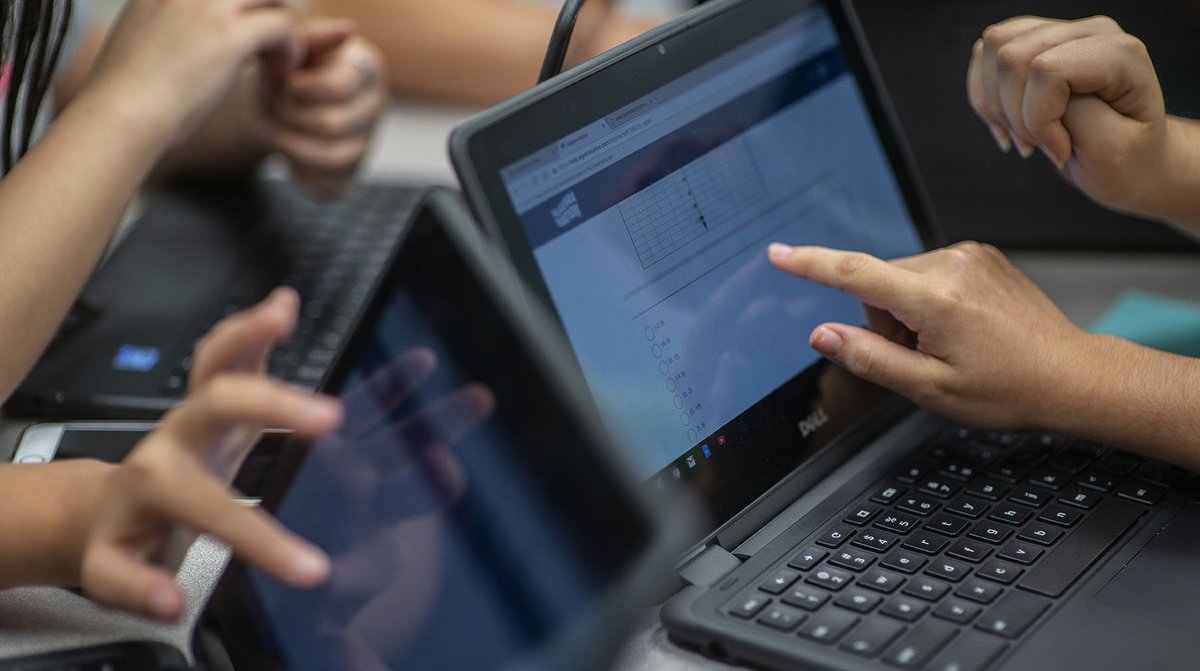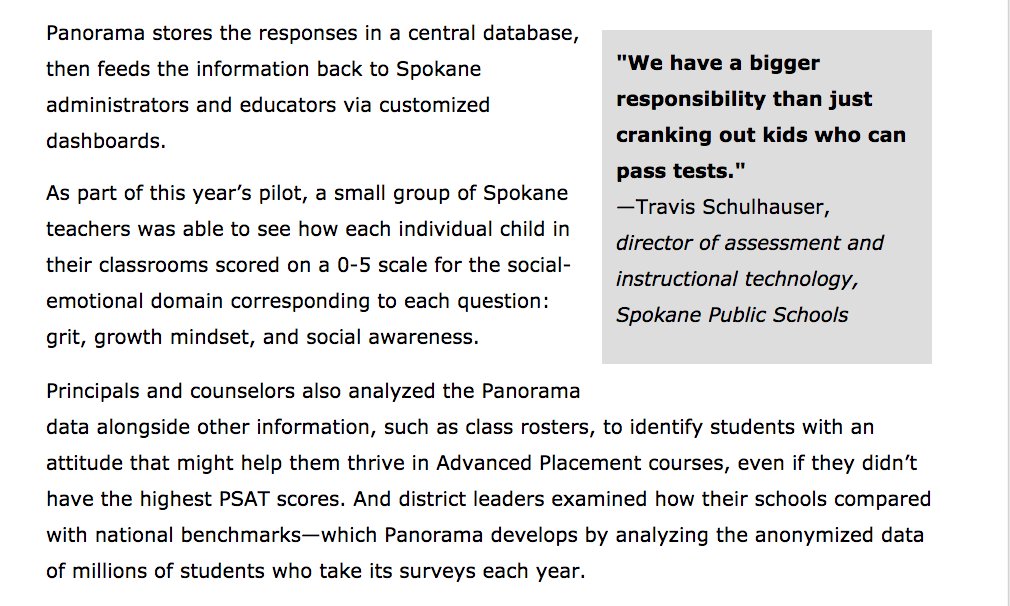1/ I spent the past couple months trying to understand how and why #edtech companies are trying to measure, monitor, and mold students' feelings, mindsets, and ways of thinking. You know what that means...thread incoming.
2/ First, let's look at some of the companies & researchers doing this work.
edweek.org/ew/articles/20…
edweek.org/ew/articles/20…
3/ Like @AlgebraNationFL. A team of academics, funded by an $8.9m @IESResearch grant, have used the online platform to anonymously collect the clicks and keystrokes of 200,000 Fla. students. The goal: teach the software to pinpoint when kids feel happy, bored, or engaged. 

4/ And @PanoramaEd, which has raised $32m in VC. Each year, the company administers online surveys to ~7m students in 8,500 schools. That means a huge central database of kids' responses to questions about #grit, #growthmindset, emotion regulation, social awareness, and more...
5/...Panorama also feeds back to districts like @spokaneschools their own info, which is used to help make a variety of decisions. “As we get more & more information from kids, I think we’ll respond to each student better & better,” said Spokane's director of assessment. 

6/ There are also newer companies, like San Francisco-based startup Emote, a recent graduate of the @ycombinator @imaginek12 accelerator. Here's a video explaining the Emote app, which allows school staff to record & share observations of students' feelings in real time.
7/ “I think this is a really exciting vision of what school can look like,” Emote CEO Julian Golder said. “There’s more interest than we can handle at this point.”
8/ And then there's a dizzying array of emerging technologies...like @mursionlearn, which is starting to work with public schools to use its virtual reality simulations for things like helping autistic students develop social-emotional skills .mursion.com/download/14006…
9/ Or the FOCI--a wearable that clips to the waistband, tracks your breathing, and tells when you're focused or stressed. The app is billed as a "focus-enhancing mind coach." A press release billed it as a cure for digital distractions in the classroom. fociai.com
10/ And researchers like Sidney D'Mello & his team at the Emotive Computing Lab are doing cutting-edge work w/ eye-trackers, facial expression scanning, machine learning, and "intelligent tutors." sites.google.com/site/sidneydme…
11/ What does it all mean? @JIMSEDU of the Chan Zuckerberg Initiative is at the fore of efforts to make sense of this new landscape...
blogs.edweek.org/edweek/Digital…
blogs.edweek.org/edweek/Digital…
12/ ...Shelton said kids' growth/learning encompasses physical, mental-health, identity, cognitive, social-emotional, & academic development.
“Unless you understand how they are relating to each other, it is very difficult to optimize any of them.”
“Unless you understand how they are relating to each other, it is very difficult to optimize any of them.”
13/ But Shelton and others also acknowledge it's an open question whether #edtech can reliably measure any #SEL skiills...an issue explored in-depth in this must-read piece by my colleague @EvieBlad.
edweek.org/ew/articles/20…
edweek.org/ew/articles/20…
14/ And critics like @jane_jrobbins of @approject take a broader view, raising concerns re: privacy & liberty.
“The idea of telling children that even their feelings are not private & that we’re going to constantly surveil them & analyze them, is just un-American,” she said.
“The idea of telling children that even their feelings are not private & that we’re going to constantly surveil them & analyze them, is just un-American,” she said.
15/ University of Stirling lecturer @BenPatrickWill also raised the specter of Facebook/Cambridge Analytica-style behavior modification, targeted at students 

16/ Add it all up, and K-12 is walking a tightrope, ably summed up by Jeremy Taylor, the director of assessment at @caselorg...
17/ “#SEL is really about building relationships & communities,” Taylor said. “We hope ed tech can support that, but we have to make sure things are done in a way that is responsible and not outpacing people’s comfort with what is happening in their schools,”
18/ fin
• • •
Missing some Tweet in this thread? You can try to
force a refresh





